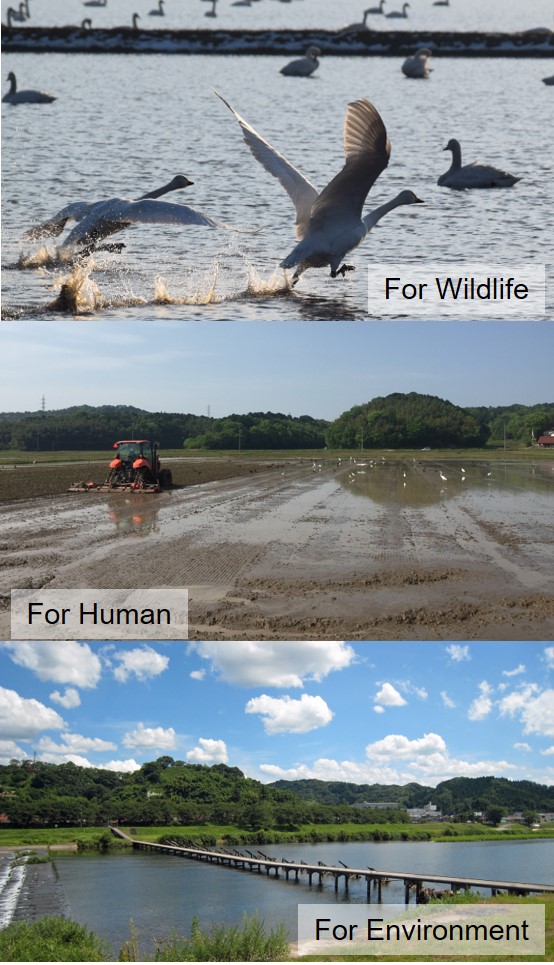Example
Eco-friendly agricultural practices for sustainable water environment
Background
Agriculture is essential to modern civilization but often has unintended negative effects upon the natural environment, especially regarding water quality. Overuse of fertilizers is costly both economically and environmentally. We evaluated regional agricultural cultivation practices to determine optimal irrigation and fertilizer, timing and amounts, to maximize production while minimizing nutrient-driven eutrophication of local water bodies.
Agricultural fields are used not only by farmers, but also by wildlife. We studied the effects of the Tundra Swan on nutrient levels in rice paddies. Tundra Swans, from Far East Russia, overwinter in flooded paddy-fields from November to March. They roost in the paddy-fields at night and forage nearby in other agricultural fields during the day. We measured Tundra Swan manure-nutrient component of paddy-field soil and water nutrient concentrations to determine optimal farmer-applied fertilizer amendments required for rice production, without over-applying.
Our mission
Our ultimate goal is to find a win-win-win relationship among the environment, humans (farmers), and wildlife with respect to water quality.

URL
http://www.eme.okayama-u.ac.jp/Sections/Irrigation/index-en.html
Representative
